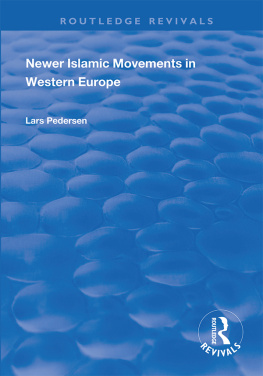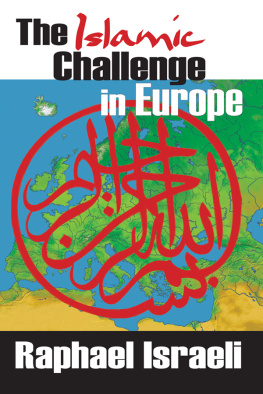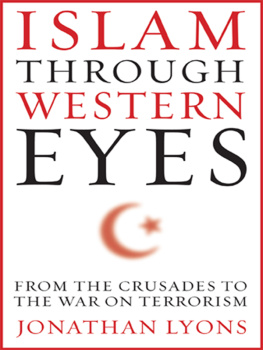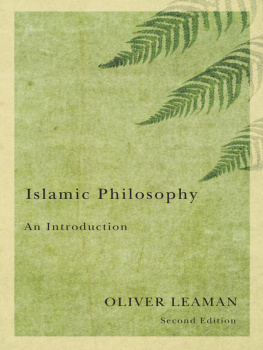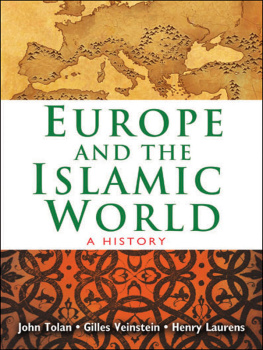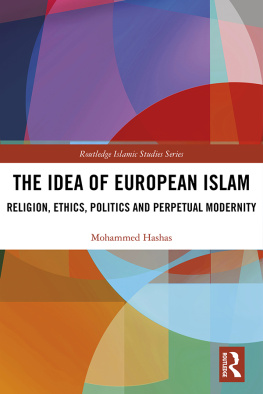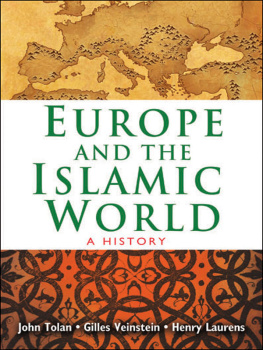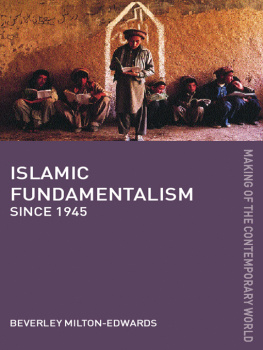NEWER ISLAMIC MOVEMENTS IN WESTERN EUROPE
First published 1999 by Ashgate Publishing
Reissued 2018 by Routledge
2 Park Square, Milton Park, Abingdon, Oxon, OX14 4RN
711 Third Avenue, New York, NY 10017
Routledge is an imprint of the Taylor & Francis Group, an informa business
Copyright Lars Pedersen 1999
All rights reserved. No part of this book may be reprinted or reproduced or utilised in any form or by any electronic, mechanical, or other means, now known or hereafter invented, including photocopying and recording, or in any information storage or retrieval system, without permission in writing from the publishers.
Notice:
Product or corporate names may be trademarks or registered trademarks, and are used only for identification and explanation without intent to infringe.
Publishers Note
The publisher has gone to great lengths to ensure the quality of this reprint but points out that some imperfections in the original copies may be apparent.
Disclaimer
The publisher has made every effort to trace copyright holders and welcomes correspondence from those they have been unable to contact.
ISBN 13: 978-1-138-32374-2 (hbk)
ISBN 13: 978-1-138-32375-9 (pbk)
ISBN 13: 978-0-429-45124-9 (ebk)
This Ph.D thesis is the outcome of a lengthy process. It is primarily based on fieldwork carried out among Islamists in the years from 1989-1993, and on later observations of the response from within Danish public institutions to themes related to immigration generally, and to Islamic forms of expression in particular.
The research project of which this thesis is a result has, over the years, been supported financially by the Danish Research Council for the Humanities, and the Danish Social Science Research Council, while I was attached to the Dept, of Ethnography and Social Anthropology, Aarhus University, Denmark.
First and foremost, I should naturally like to thank the many people, ordinary members as well as leaders, of the various Islamic groups in Europe who had sufficient confidence in me to invite me in - no names mentioned, and none forgotten.
I have received a great deal of encouragement and advice from my two tutors: Dr. Klaus Ferdinand, former head of department, now professor emeritus, Dept, of Ethnography and Social Anthropology, Aarhus University, has been an engaged and supportive tutor over the years. On the whole, Klaus Ferdinand is the person who has contributed above all, both prior to and during the project, to enabling me to focus my interest in Islam and Islamism in relation to Muslim immigrant societies in Western Europe. His contribution cannot be overestimated.
Dr. Carl-Ulrik Schierup, Dept, of Sociology, Ume\xE5 University has been a great source of inspiration in the attempt to pair traditional ethnographic theory with other relevant social science outlooks. One could say that in this way the theoretic eclecticism here corresponds to the eclecticism of multicultural society. Carl-Ulrik Schierup has been an outstanding critical reader of the thesis and came up with numerous suggestions, not all of which were met with enthusiasm on my part, but which nevertheless have been valuable to the final result. While I have good reason to thank these two tutors, I am, however, the only one who can and should be held accountable for whatever shortcomings this thesis might contain.
One other person who deserves thanks is Dr Kirsten Haugaard Bach who specialises in Egypt. Kirsten has been a thorough and very critical reader of this work. She has come up with suggestions for improvements and has pointed out inconsistencies - despite which, we remain good friends!
I should like to thank the Danish Research Council for the Humanities for making an English version of the thesis possible with their economic support. Finally, Jamal Mahjoub deserves thanks for having delivered a firm and accurate translation of the thesis from the Danish original. Jamal is also responsible for providing the final camera-ready-copy.
August 1998
Lars Pedersen
The significance of the influence of Islamic movements in the Middle East as well as among immigrants in Europe is a theme that crops up time and again, not least of all in the media. These movements constitute one of the greatest political challenges facing nation states in the Middle East, alongside the unresolved question of national identity.
In Europe Islamism is often regarded as a statement of demarcation made by immigrant Muslims who consciously seek to avoid integration and whose way of life subscribes to certain norms and values that are at odds with those of the majority of society. Islamism in Europe stresses Islam as a relevant medium in the formulation of cultural heritage and identity among immigrant Muslims.
There are historic precedents for Islam being used as a part of political argumentation in the Middle East. King Hassan II of Morocco, for example, claims that he is a Sharif, in other words that he is a descendent of the prophets clan; the Saudi royal family trace their ancestors to the religious reformists who were involved in the local power struggle towards the end of the last century, moreover, they call themselves the Protectors of Islams two holy sites; President Sadat sought increasingly to be filmed in a mosque whenever he was to appear on Egyptian television.
The Arab nationalism which the Bathist party in Iraq has stood for since 1968 is founded on secularism. But despite the basis of the state being secular this has not outruled the use of language carrying religious connotations being utilised to gain legitimacy. President Saddam Hussein, for example, made the following statement in Najaf, a town sacred to the Shiites, in 1979:
Iraq will fight and triumph against injustice everywhere with the swords of Imam Ali, Husayn, Khalid al Walid, Salah al-Din, all Arab strugglers and Islamic leaders of the land of Arabism and of the message of Islam (Broadcast on Baghdad radio, 17th October 1979; in; Dam 1983, p. 131).
According to the secularism being developed in Iraq, Shia and Sunni Islam share a common cultural heritage. The heroes of Shiite history are on an equal par with those in Sunni Muslim history.
In that same year (1979) Saddam Hussein accused Syria of being behind an attempted coup staged against him. He structured his accusations so as to draw a parallel between the conflict between the two Bath parties in Iraq and Syria respectively, and the story of the rivalry in the 7th century between the fourth, and last, so-called Rightly Guided caliph, Ali, who controlled most of Iraq, and Muawiyah, who was the governor of Syria but who himself wanted to be caliph and therefore did not recognise Ali (ibid.)
Nor did Islam manage to avoid being invoked in the run up to the Gulf conflict of 1991-92. Saddam Hussein called for a Jihad (holy war) against the infidels. This man, who had formerly stood for a secular form of Arab nationalism, appealed for full mobilisation, using a term that in the West denotes the essence of religious fanaticism. A few days later a sigh of relief was heard when it was announced that Saudi Arabia had engaged 290 theologians from 60 countries who had unanimously rejected the threat. Saddam Hussein could not, according to these experts, call for a Jihad under the circumstances.

